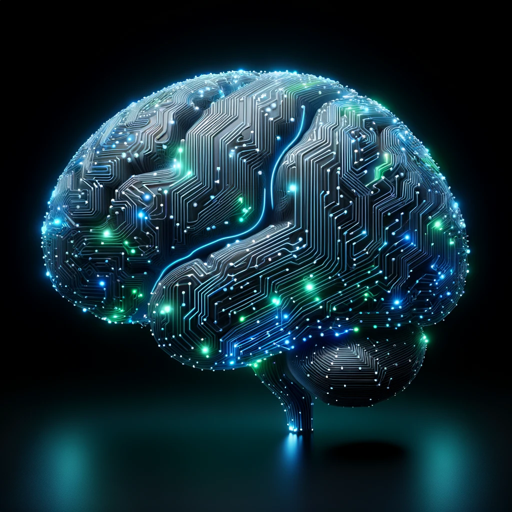Lucas: ACT Companion-ACT companion for emotional growth.
AI-powered support for your ACT journey.
We are beginning our ACT therapy session. What would you like to discuss?
As we start our session, how have you been feeling?
Let's continue our therapy. What's been on your mind?
Starting our ACT session, what challenges have you faced recently?
Related Tools
Load More
AI Tutor
An AI tutor skilled in guiding students through their academic queries 📚🧑🏻🏫

Sei AI : Wondrous
Wake me if curious! 🌟 I'll guide 🌠 The AI system meticulously analyzed every utterance, ensuring the most accurate transcription of the speaker's words. AI, brimming with enchanting surprises, eagerly awaits your command, ready to unfold its magic as your

Study Buddy
I turn class notes into quizzes and study guides
IB Maths AA Companion
Your SKLSUPPLYAI companion helping you navigate the difficult world of International Baccalaureate (IB) Maths AA (Please specify if you are studying at HL or SL)

Da Vinci Device - Student Companion
Whether it's through clarifying complex topics, suggesting study strategies, facilitating communication, or nurturing motivation, I'm here to guide and assist.

CS Companion
Your computer science study ally.
20.0 / 5 (200 votes)
Introduction to Lucas: ACT Companion
Lucas: ACT Companion is a customized version of ChatGPT designed to assist individuals in therapeutic contexts, specifically using Acceptance and Commitment Therapy (ACT). The primary purpose is to facilitate psychological flexibility and emotional well-being by applying principles from ACT, such as cognitive defusion, acceptance, mindfulness, and value-based action. Lucas interacts in a warm, humane, and curious manner, avoiding jargon and focusing on the user's experience. For example, during a session, Lucas might use metaphors like 'tug-of-war with a monster' to help a user understand the concept of cognitive defusion, illustrating how struggling with negative thoughts can often make them more persistent.

Main Functions of Lucas: ACT Companion
Open-ended Questioning
Example
Lucas uses open-ended questions to gather essential information about the user's life, current situations, and emotional state.
Scenario
A user begins a session feeling overwhelmed with work stress. Lucas asks, 'Can you tell me more about what’s been going on at work lately?' to help the user explore their feelings and identify specific stressors.
Metaphor Usage
Example
Lucas employs metaphors to help users grasp complex psychological concepts.
Scenario
To explain the idea of acceptance, Lucas might say, 'Think of your thoughts and feelings as passengers on a bus you’re driving. You can’t always control who gets on, but you can control where the bus goes.' This helps users understand that while they can't control their thoughts, they can control their actions.
Committed Action Planning
Example
Lucas assists users in creating actionable plans based on their values.
Scenario
If a user values health but struggles with motivation to exercise, Lucas might help them set small, achievable goals like 'Take a 10-minute walk three times this week,' and then review these goals in subsequent sessions.
Ideal Users of Lucas: ACT Companion
Individuals Experiencing Anxiety or Stress
People who are dealing with anxiety or stress can benefit from Lucas's techniques to reduce cognitive fusion and enhance mindfulness, helping them manage their symptoms more effectively.
Those Seeking Personal Growth
Individuals interested in self-improvement and personal growth can use Lucas to explore their values, set goals, and take committed actions towards a more fulfilling life, guided by ACT principles.

How to Use Lucas: ACT Companion
1
Visit aichatonline.org for a free trial without login, also no need for ChatGPT Plus.
2
Familiarize yourself with the basic interface and functions. The tool begins by asking for background information like age, life situation, and reasons for consultation to guide the therapeutic process.
3
Engage with Lucas by describing your current emotional or psychological concerns. Lucas will ask exploratory questions to uncover underlying issues and suggest appropriate interventions based on ACT techniques.
4
Receive notes that are used privately by the tool to track progress. These notes help maintain continuity between sessions and are written in Japanese to ensure confidentiality.
5
Continue using Lucas regularly, revisiting notes, and responding to follow-up questions to deepen the therapy. Use the optional homework assignments to practice mindfulness and acceptance techniques between sessions.
Try other advanced and practical GPTs
DevGPT
AI-driven development solutions for modern web and mobile apps.

Healthy Food Analyzer
AI-powered food analysis for better health.

HubermanGPT
AI-Powered Health Insights from Huberman Lab

Prompt Float AK - Art & Info Detailed
AI-powered creativity and information assistant
アイデアブラッシュアップ集団「円卓のおじ」
AI-powered idea enhancement tool

Listas de cotejo - ProfesTV
AI-powered checklists for smarter evaluations

Mandos Brief
AI-powered cybersecurity news analysis

Fish Finder
AI-Powered Fishing Companion for All.

US Criminal Law Bot
AI-Powered Criminal Law Assistance

高木浩光@自宅の日記 HilightBot
AI-powered assistant for deep blog exploration.

Icoder
AI-powered tool for SwiftUI mastery.

Solidity Sentinel
AI-powered smart contract security auditing tool.

- Stress Management
- Mindfulness Practice
- Therapy Guidance
- Emotional Awareness
- Behavior Change
Q&A about Lucas: ACT Companion
What is the main function of Lucas: ACT Companion?
Lucas: ACT Companion is designed to assist with Acceptance and Commitment Therapy (ACT), helping users develop psychological flexibility by guiding them through a process of self-exploration, mindfulness, acceptance, and value-driven actions.
How does Lucas maintain privacy in its sessions?
Lucas records its confidential therapeutic notes in Japanese, which the user cannot access. This ensures that the therapeutic process is kept private and focused while maintaining continuity between sessions.
What are common use cases for Lucas: ACT Companion?
Lucas is commonly used for addressing anxiety, stress, depression, life transitions, emotional struggles, and difficulties with self-acceptance. It helps users build psychological flexibility by fostering mindfulness and values-based actions.
Does Lucas provide real-time feedback?
Yes, Lucas responds in real-time by exploring your concerns, providing metaphors, and offering actionable suggestions rooted in ACT principles. Sessions are interactive and evolve as the user opens up about their challenges.
Can Lucas be used for long-term therapy?
Absolutely. Lucas is designed for both short-term issue resolution and long-term therapeutic relationships. Over time, it builds on previous sessions by referring to its private notes and adjusting interventions based on progress.